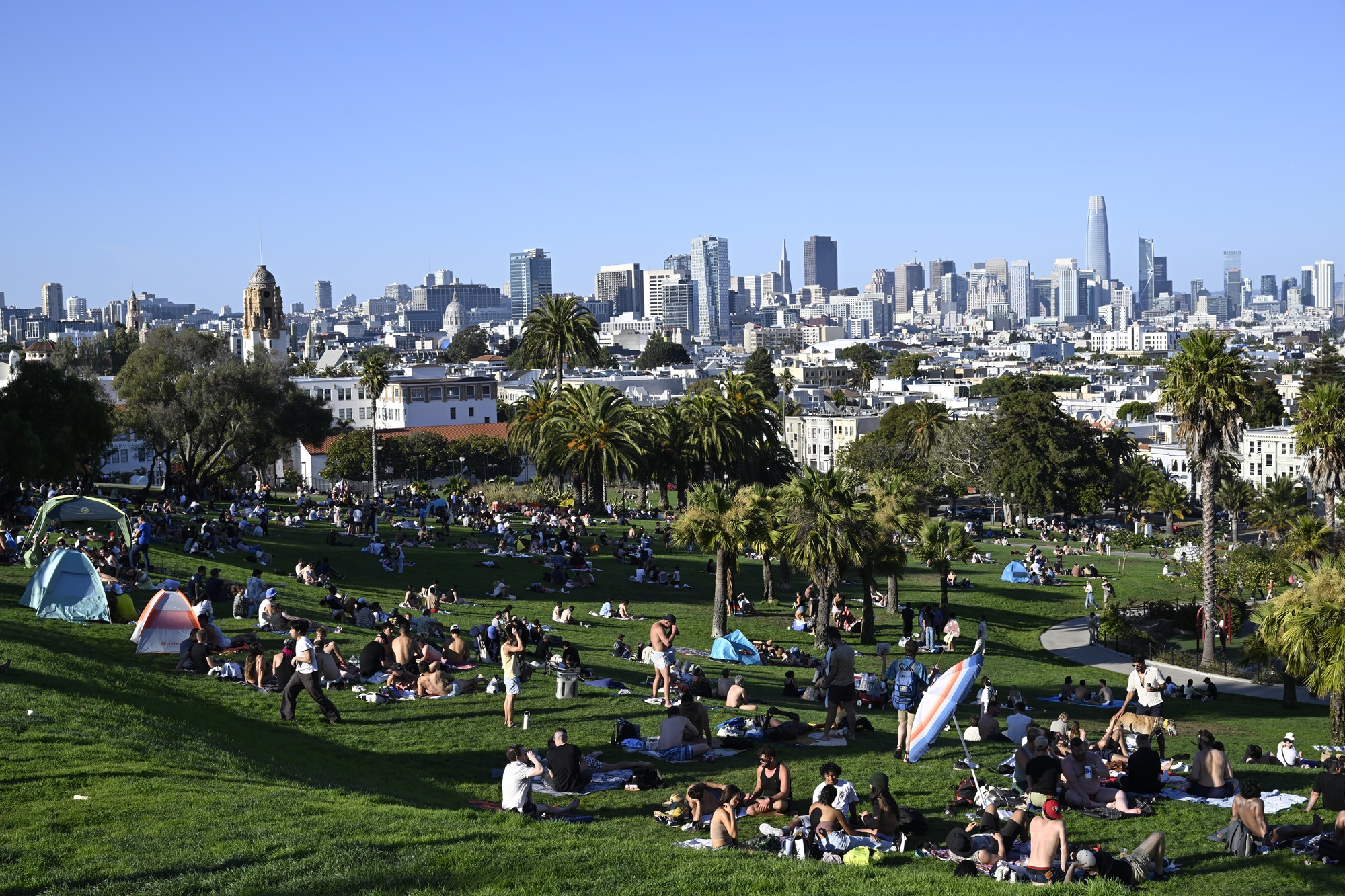
"Forecasters expect Tuesday to be the hottest day of the week with temperatures about 5 degrees above average along the coast and 15 degrees above average inland. The National Weather Service issued a moderate heat risk warning through Wednesday, which means the general public should be able to handle the warmth. Still, sensitive groups, such as older adults and children, should exercise caution."
"Higher elevations may not cool below 70 degrees overnight inland, and forecasters expect relative humidity to be low, which would aid in drying out grasses that could easily burn if ignited. "We're not expecting really strong offshore winds at this time, which should keep the conditions cooler near the coast, but it'll still be warm," Gass said."
"However, the weather service anticipates conditions to shift on Thursday as tropical moisture moves into the region, increasing instability and potentially bringing thunderstorms. The primary concern is that the storms could bring dry lightning and erratic, gusty winds. "These conditions could lead to new fire starts, especially given the increasingly dry fuels across the region," meteorologists wrote in the weather service's daily forecast email."
Above-average temperatures will persist across the Bay Area through Wednesday, with the hottest day expected Tuesday when coastal readings reach about 5 degrees above average and inland areas about 15 degrees above average. The National Weather Service issued a moderate heat risk warning through Wednesday and advised caution for sensitive groups such as older adults and children. Nighttime inland lows may remain above 70 degrees while relative humidity drops, drying fuels. Offshore winds are not expected to strengthen significantly, keeping the coast cooler. Tropical moisture arriving Thursday could increase instability and bring thunderstorms, with dry lightning and gusty winds creating elevated fire-start risks.
Read at Kqed
Unable to calculate read time
Collection
[
|
...
]